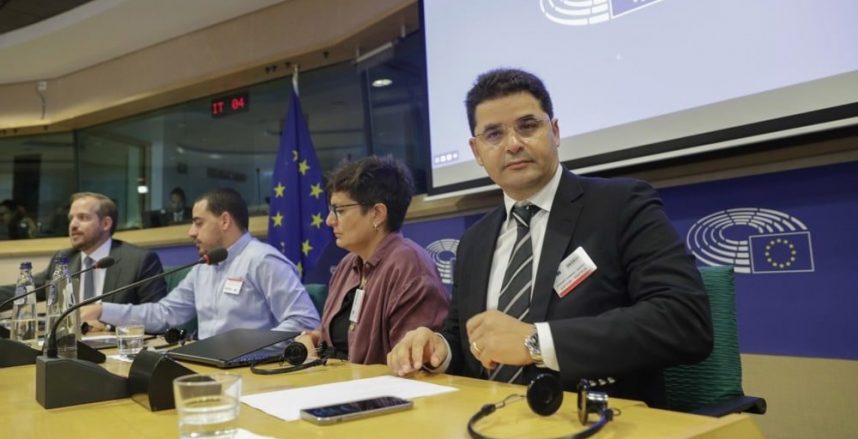
International Press Institute says a number of EU states are trying to water down the new EU Media Freedom Act to legalise journalists’ surveillance in some cases on national security grounds.

The International Press Institute, IPI, a global organisation dedicated to the protection of press freedom, has accused Greece, Italy and France of lobbying to legitimise state spying on journalists.
“IPI is concerned by revelations that France, Italy Greece and other governments are pushing for loopholes for ‘national security’ regarding the surveillance of journalists amidst the final stages of EU negotiations on the European Media Freedom Act,” IPI wrote on X (Twitter).
Three EU media, Investigate Europe, a cross-border team composed of EU reporters, Disclose, a French non-profit organisation, and Follow the Money, a platform for independent investigative journalism based in Holland, revealed in an investigation that Greece, France, Italy and Cyprus are among seven EU countries lobbying on a broader wording in the European Media Freedom Act, EMFA, which would permit the use of spyware for “national security” against journalists.
After the Council of the EU on June 20 adopted the first draft of the EMFA, Reporters Without Borders RSF called on MEPs to reverse the “national security” exception, describing it as a danger to journalism.
“We call on the amendment’s authors to reverse it and we urge the European Parliament to reject this useless and dangerous provision, which would poison this law from within,” wrote RSF.
“That the interior ministries of established democracies could associate themselves with such rogue-state practices represents a grave precedent in the European process,” it added.
The investigation contains a file written by a high-ranking German official, presenting the minutes of the EU Council of Permanent Representatives meeting on November 22 about the EMFA.
The file reveals that Italy took the strictest stance on national security. France, Finland and Cyprus also stated they were “not very flexible” on this issue. Sweden, Malta and Greece also agreed “with some nuances.”
The EU Council and parliament and Commission will decide on Friday on the new EMFA law, which will set the provisions for journalists’ surveillance – or not – by state authorities.
Seventeen EU media organisations on December 1 called on MEPs to adopt a robust wording in the final version of the EMFA that would ensure a high level of journalistic protection and recognise the conditions under the ECHR and case-law under which interferences with journalists’ freedoms can be justified, “in particular the requirement of a prior order by an independent and impartial judicial authority”, they wrote.
Greece has attracted international attention for the wiretapping scandal of journalists, politicians, business people and other individuals by the secret services using the illegal spyware Predator.